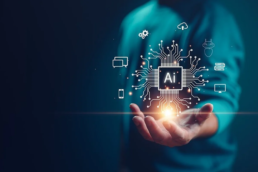The healthcare sector stands on the cusp of a revolution, driven by the integration of machine learning (ML) into its various facets. This technological advancement promises to enhance patient care, improve diagnosis and treatment outcomes, and streamline healthcare operations. This article explores the burgeoning role of ML in healthcare, highlighting both the opportunities it presents and the challenges it poses.
The Advent of Machine Learning in Healthcare
Machine learning, a subset of artificial intelligence (AI), involves algorithms that learn from data and improve over time. In healthcare, ML’s ability to process vast amounts of data and uncover patterns can lead to more accurate diagnoses, personalized treatment plans, and better patient outcomes.
Enhancing Diagnostic Accuracy with ML
One of the most significant impacts of ML in healthcare is in diagnostics. ML algorithms can analyze medical imaging, such as X-rays and MRIs, with high precision, often detecting subtleties that may be missed by the human eye. This can lead to earlier and more accurate diagnoses of conditions like cancer, heart disease, and neurological disorders.
Personalized Medicine: Tailoring Treatment to the Individual
ML facilitates the move towards personalized medicine, where treatments are tailored to the individual characteristics of each patient. By analyzing data from a patient’s genetic makeup, lifestyle, and environment, ML algorithms can help predict how they will respond to different treatments, allowing for more effective and targeted therapies.
Improving Patient Care with Predictive Analytics
Predictive analytics, powered by ML, can identify patients at high risk of developing certain conditions, enabling early intervention. For example, ML can analyze electronic health records (EHRs) to identify patients at risk of chronic diseases like diabetes or heart disease, prompting preventative care measures.
Streamlining Healthcare Operations
ML also plays a crucial role in improving healthcare operations. From managing patient flow to optimizing hospital resource allocation, ML can enhance efficiency, reduce costs, and improve patient experiences.
Case Study: ML in Disease Outbreak Prediction and Management
Consider the use of ML in predicting and managing infectious disease outbreaks. By analyzing data from various sources, including healthcare records and social media, ML can help identify potential outbreaks before they occur, enabling timely responses and resource allocation.
Challenges in Implementing Machine Learning in Healthcare
Despite its potential, the integration of ML into healthcare is not without challenges. These include ensuring the accuracy and privacy of medical data, addressing ethical concerns around AI decision-making, and the need for interdisciplinary collaboration between technologists and healthcare professionals.
Data Privacy and Security Concerns
With ML relying heavily on data, ensuring the privacy and security of patient information is paramount. Healthcare providers must adhere to stringent data protection regulations and ensure that ML systems are secure against cyber threats.
The Future of ML in Healthcare
Looking ahead, ML is set to become increasingly integral to healthcare. Future developments may include more advanced diagnostic tools, wider adoption of telemedicine powered by ML, and the use of ML in developing new drugs and treatment protocols.
Conclusion
Machine learning offers a transformative potential for the healthcare industry. By enhancing diagnostics, personalizing treatment, and improving operational efficiency, ML can lead to better patient outcomes and more efficient healthcare systems. However, realizing this potential requires careful navigation of the associated challenges, particularly in terms of data privacy,
security, and ethical considerations. As the technology evolves, the collaboration between healthcare professionals and AI experts will be crucial in harnessing the full potential of ML in healthcare, creating a future where healthcare is more accessible, accurate, and personalized than ever before.




